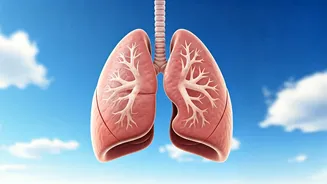Pollution's Harmful Effects
Air pollution, a pervasive environmental hazard, negatively impacts human health. Breathing polluted air can cause respiratory issues like asthma, bronchitis,
and even chronic obstructive pulmonary disease (COPD). It also exacerbates cardiovascular problems, leading to increased risk of heart attacks and strokes. Furthermore, long-term exposure to pollutants has been linked to various cancers, including lung cancer. Studies show children and the elderly are particularly vulnerable, experiencing greater health impacts due to their weaker immune systems. The severity of these health issues is often linked to the concentration and duration of exposure to harmful substances. Pollutants like particulate matter (PM2.5 and PM10), ozone, nitrogen dioxide, and sulfur dioxide are the primary culprits. They can penetrate deep into the respiratory system, causing inflammation and damage.
Indoor Air Quality Matters
It is crucial to consider indoor air quality, given that people spend a significant amount of time indoors. Indoor pollutants from sources like cooking, cleaning products, and building materials can add to the health risk. Regular ventilation is essential for indoor air quality. Opening windows and using exhaust fans helps remove indoor pollutants. Air purifiers with HEPA filters can effectively remove particulate matter, allergens, and other contaminants. Regular maintenance of HVAC systems, including filter changes, is also important. The use of natural cleaning products and minimizing the use of air fresheners can further improve indoor air quality. Monitoring indoor air quality with sensors can provide valuable insights into pollutant levels, allowing for targeted intervention.
Lifestyle Adaptations Needed
Making informed lifestyle choices is an effective way to minimize the health risks associated with air pollution. One strategy involves reducing exposure to polluted environments. Staying indoors during peak pollution hours, usually during rush hour or when air quality alerts are issued, can help. When outdoors, wearing an N95 mask can filter out many harmful particles. Choosing less polluted routes, such as avoiding major roadways, is another good practice. Avoiding strenuous outdoor activities during high pollution days can further protect your health. Monitoring local air quality reports regularly provides valuable information, allowing you to adjust your plans accordingly. Supporting local and national policies that promote clean air is essential for a collective improvement in air quality.
Diet and Nutrition's Role
Dietary choices can play a key role in mitigating the adverse effects of air pollution. Consuming a diet rich in antioxidants helps to combat the oxidative stress caused by pollutants. Foods like fruits, vegetables, and whole grains are packed with antioxidants, supporting the body's natural defenses. Including foods rich in omega-3 fatty acids, such as fatty fish, may reduce inflammation caused by air pollution. Staying well-hydrated is also crucial, supporting the body's detoxification processes. Consider incorporating supplements like Vitamin C, Vitamin E, and selenium, which have antioxidant properties, but always consult with a healthcare professional before starting any new supplement regimen. Prioritizing a balanced diet strengthens overall health, making the body more resilient against the negative impacts of pollution.
Protecting Vulnerable Groups
Certain population groups, including children, the elderly, and those with pre-existing respiratory or cardiovascular conditions, are particularly susceptible to the negative health impacts of air pollution. For children, ensuring they play indoors during high-pollution days, especially when air quality alerts are issued, is advisable. Limiting their exposure to busy roads and encouraging frequent handwashing to remove pollutants is also helpful. The elderly should stay indoors during high-pollution times and consider using air purifiers in their homes. Individuals with respiratory or cardiovascular issues should closely monitor air quality reports and adhere to their medical treatment plans. Regular medical check-ups are essential for monitoring health and managing any pollution-related health problems. Providing support and information tailored to these vulnerable groups can improve their health outcomes and overall well-being.














